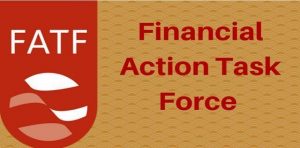Mutual Evaluation Report Of India:

The Mutual Evaluation Report of India, adopted at the FATF plenary in Singapore from June 26 to 28, places India in the “regular follow-up” category, a status shared by only four other G-20 countries.
- This distinction highlights India’s significant progress in combating money laundering (ML) and terrorist financing (TF).
- Financial Action Task Force (FATF) is an inter-governmental policy-making and standard-setting body dedicated to combatingmoney laundering and terrorist financing.
- Objective is to establish international standards, and to develop and promote policies, both at national and international levels, to combat money laundering and the financing of terrorism.
- It was established in 1989 during the G7 Summit in Paris to develop policies against money laundering. In 2001 its mandate expanded to include terrorism financing.
- Headquarters: Paris,France.
- FATF members include 39 countries, including the United States, India, China, Saudi Arabia, Britain, Germany, France, and the EU as such.
- India became a member of FATF in 2010.
Mutual Evaluation Report of FATF:
- The mutual evaluation report is an assessment of a country’s measures to combat money laundering, financing of terrorism and proliferation of weapons of mass destruction
- The reports are peer reviews, where members from different countries assess another country.
- During a mutual evaluation, the assessed country must demonstrate that it has an effective framework to protect the financial system from abuse.
- The FATF conducts peer reviews of each member on an ongoing basis to assess levels of implementation of the FATF Recommendations, providing an in-depth description and analysis of each country’s system for preventing criminal abuse of the financial system.




